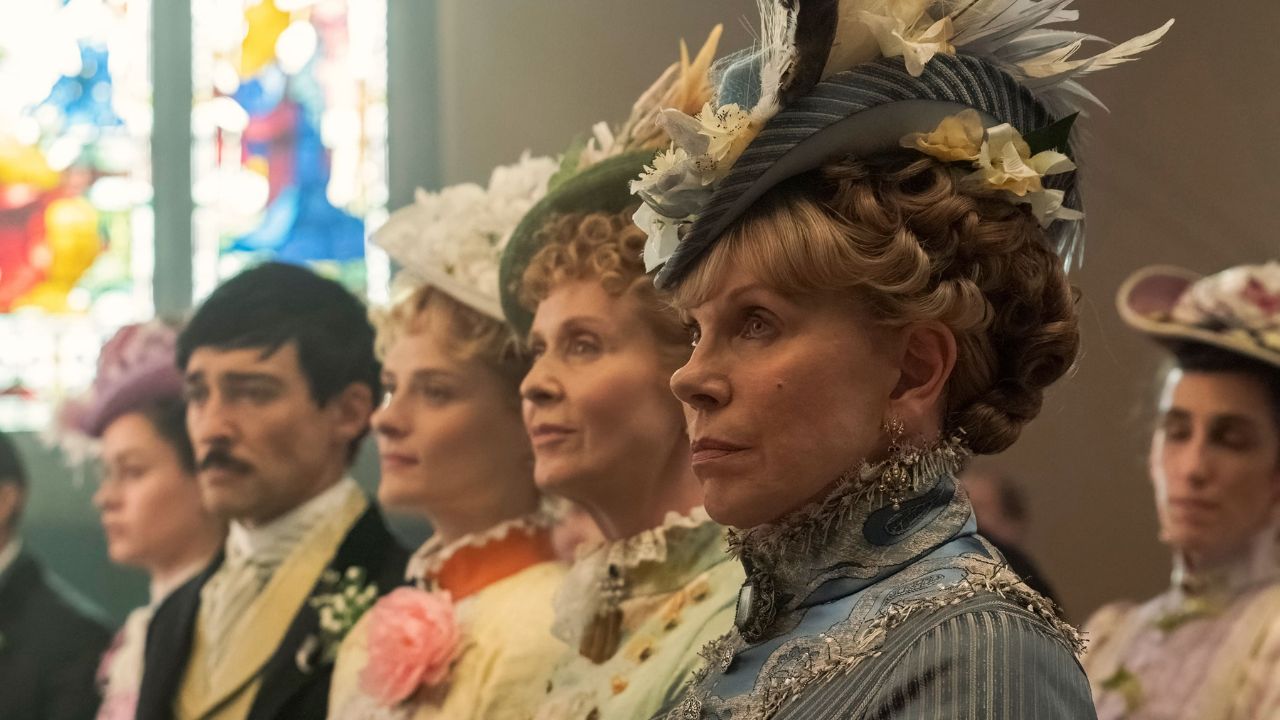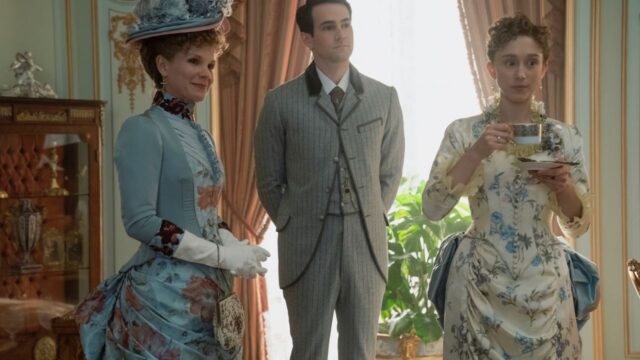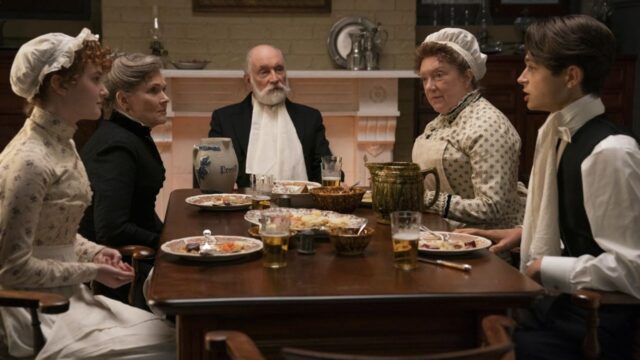The Gilded Age Season 2 was eventful from beginning to end. The story’s scope expanded, yet the heart remained the same. Exploring the ins and outs of high society in 1880s New York, the show features fortunes as they are made and broken.
With the triumphant conclusion of the Opera War and the rescue of the Van Rhijn family fortune, The Gilded Age season 2 ending has brought Julian Fellowes’ period drama to a dazzling close. After “duking” it out the entire season, Mrs. Astor and Mrs. Russell make their final efforts to curry favor and secure New York City’s elite as the Academy of Music and The Metropolitan begin their seasons on the same night.
To seal the deal with Mrs. Russell, the Duke shows up at the Met, and it is confirmed that Mrs. Russell is the clear winner of the Opera War.
As the lights go down on opening night, several surprises rock the foundation of the silver spoon set and send society into a tailspin.
1. What Deal Does Mrs. Russell Make With the Duke?
Neither Mrs. Astor nor Mrs. Russell believes in a free lunch. They understand they must give something to get the Duke on their side. Mrs. Astor, being savvy, offers the Duke his heart’s desire. Initially, Mrs. Russell assumes it’s a simple monetary transaction, but Mr. McAllister reveals it’s much more significant.
The Duke desires entry into the elite society of New York and to be part of the inner circle of Mrs. Astor’s group. Unfortunately for Mrs. Russell, she still competes for this prestigious position and cannot offer it to the Duke.
Desperate to win him over, she offers him more money, but her husband quickly shuts it down. He urges his wife to have confidence in herself and allow the Duke to decide. However, Mrs. Russell is not easily appeased, and winning at all costs becomes her sole focus.
2. How Bertha Rusell Reinvented American Society?
When Mrs. Fish realizes that the place to be is The Met, she forsakes The Academy and hurries to be with the rest of New York City’s elite. She makes it a point to tell Mrs. Russell that not only has she won the Opera War but reinvented American society with her victory.
When Mrs Russell takes in the spectacle from her box, she sees that almost every prominent person she wanted to come has chosen to stand by her side, leaving only Mrs. Astor, Agnes Van Rhijn, and a few dozen of the Old Guard to sit and stew in defeat at The Academy.
According to Mrs. Fish, society’s traditional norms have significantly transformed. She suggests that individuals like the Russell, who have recently acquired wealth, now have the power to set new standards instead of being subject to outdated ones.
By promoting The Met as a hub of culture and art, Mrs. Russell has boldly challenged Mrs. Astor’s strict guidelines, forging her path instead. The Opera War symbolizes advancement and the influential role of industrialization during America’s Gilded Age. Success in this era is determined by those who actively support and propel progress rather than those who obstruct it.
3. The significance of Jack’s Alarm Clock invention explained
The downstairs staff at the Van Rhijn household had an intriguing subplot revolving around Jack’s journey with alarm clocks. It all began when he created an ingenious escapement mechanism that prevented the timekeeping components from getting stuck without needing oil.
His fellow staff members were so impressed that they came together to help him secure the funds for patenting the mechanism. Jack’s dedication to his craft was evident as he joined a prestigious horological society and obtained the necessary certifications. To top it off, his invention received its patent, and Larry Russel proposed a business partnership with their superior alarm clock design.
Not only is Jack’s invention significant in the history of time-telling devices and the increasing accuracy of alarm clocks, but it showcases the upward mobility inherent to the ingenuity and innovation of the time.
It proves that even though he wasn’t born into wealth, someone like Jack can achieve upward social mobility through his ideas. This is the “American Dream” at work and one example of the many distinctly American stories that involved advancing the lower class into the upper class through hard work, dedication, and a network of supportive believers.
4. Why did Peggy Scott have to Sacrifice Her Dream Job?
As the second season of The Gilded Age comes to a thrilling end, there are numerous moments of pure joy to be savored. However, amidst the exhilaration, one moment stands out with a twinge of disappointment due to its implications. While highly praised for her work at Mr. Fortune’s paper, Peggy Scott makes the tough decision to step down from her dream job and focus on her novel.
Despite Mr. Fortune’s unwavering support and belief in her talent as a writer and advocate, Peggy cannot ignore her feelings for him and the potential complications surrounding their forbidden kiss in Tuskegee, Alabama.
But what truly drives Peggy’s decision is a recent encounter with Mr. Fortune’s wife and child, which has heightened her awareness of the moral implications of their relationship. This encounter, previously nonexistent to her, weighs heavily on her conscience and ultimately leads her to sacrifice her coveted position at the paper.
5. What Does Marian’s Canceled Wedding Mean For Her & Larry Russell?
Dashiell Montgomery has been Marian’s intended love interest for The Gilded Age’s second season. Still, it’s been clear from the beginning that while he might be a sensible partner, he’s not the one for Marian Brook.
She has shown definite chemistry with Larry Russell, but the two have been kept apart in favor of her impending nuptials. After careful consideration, she decides that she can’t, in good faith, marry Dashiell because she isn’t ready to give up her career and settle down, leaving an opportunity for her and Larry to court somewhere in season 3.
The stakes are very high for young women in Marian’s level of society, and Aunt Agnes wants to secure her future with a good match for a respectable husband.
Unfortunately, Marian doesn’t much care for the rules of society and would rather have a career and no prospects than marry the wrong person who views her vocation as frivolous. She and Larry are much more artistically minded and eager to make a change in the world. At the same time, their courtship would fabricate all sorts of fun melodrama between Bertha Russell and Agnes Van Rhijn going into The Gilded Age season 3.
6. About The Gilded Age
The Gilded Age is an American historical drama television series created and written by Julian Fellowes for HBO that is set in the United States during the titular era, the boom years of the 1880s in New York City. The series premiered on January 24, 2022.
The series follows a young woman entering 1882 New York City’s rigid social scene who is drawn into the daily conflicts surrounding the new money Russell family and the old money van Rhijn-Brook family. The two are neighbors across 61st Street near Fifth Avenue on the Upper East Side of Manhattan.
The series also shows conflicts faced by the upper and upper middle classes, the African-American upper class, and the domestic workers who tend to all of their needs.











No Comments on The Gilded Age Season 2 Ending Explained: Who Wins the Opera War?